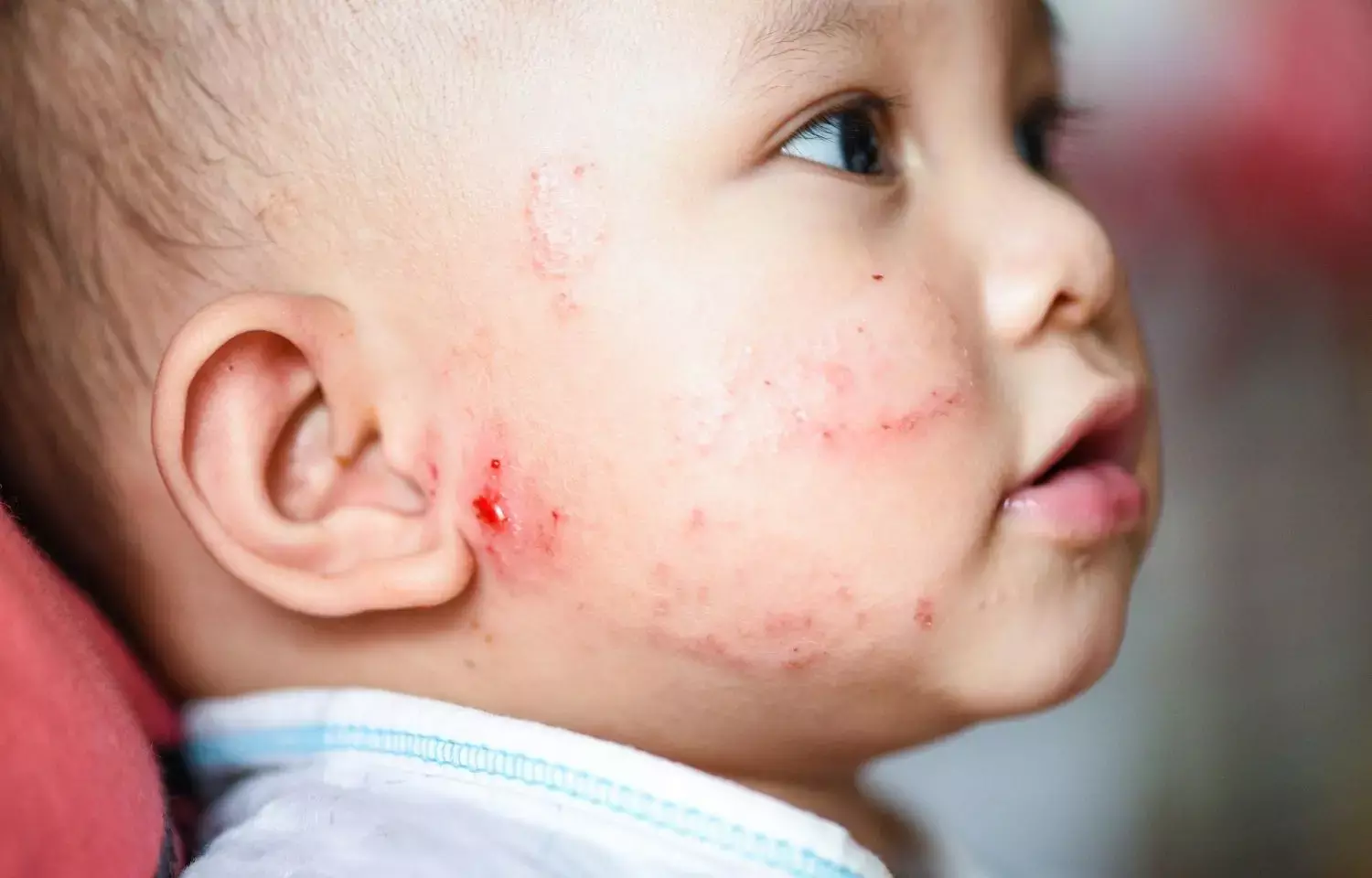- Home
- Medical news & Guidelines
- Anesthesiology
- Cardiology and CTVS
- Critical Care
- Dentistry
- Dermatology
- Diabetes and Endocrinology
- ENT
- Gastroenterology
- Medicine
- Nephrology
- Neurology
- Obstretics-Gynaecology
- Oncology
- Ophthalmology
- Orthopaedics
- Pediatrics-Neonatology
- Psychiatry
- Pulmonology
- Radiology
- Surgery
- Urology
- Laboratory Medicine
- Diet
- Nursing
- Paramedical
- Physiotherapy
- Health news
- Fact Check
- Bone Health Fact Check
- Brain Health Fact Check
- Cancer Related Fact Check
- Child Care Fact Check
- Dental and oral health fact check
- Diabetes and metabolic health fact check
- Diet and Nutrition Fact Check
- Eye and ENT Care Fact Check
- Fitness fact check
- Gut health fact check
- Heart health fact check
- Kidney health fact check
- Medical education fact check
- Men's health fact check
- Respiratory fact check
- Skin and hair care fact check
- Vaccine and Immunization fact check
- Women's health fact check
- AYUSH
- State News
- Andaman and Nicobar Islands
- Andhra Pradesh
- Arunachal Pradesh
- Assam
- Bihar
- Chandigarh
- Chattisgarh
- Dadra and Nagar Haveli
- Daman and Diu
- Delhi
- Goa
- Gujarat
- Haryana
- Himachal Pradesh
- Jammu & Kashmir
- Jharkhand
- Karnataka
- Kerala
- Ladakh
- Lakshadweep
- Madhya Pradesh
- Maharashtra
- Manipur
- Meghalaya
- Mizoram
- Nagaland
- Odisha
- Puducherry
- Punjab
- Rajasthan
- Sikkim
- Tamil Nadu
- Telangana
- Tripura
- Uttar Pradesh
- Uttrakhand
- West Bengal
- Medical Education
- Industry
Maternal antenatal vitamin D supplementation lowers risk of eczema in babies

Evidence linking prenatal maternal vitamin D supplementation with the offspring's risk of atopic eczema is inconsistent, with most data coming from observational studies.
Researchers at University of Southampton have found in a new study that intake of Vitamin D supplements during pregnancy could substantially reduce the chances of atopic eczema among babies up to a year of age.
The research revealed that babies had a lower risk of developing atopic eczema in their first year if their mothers took 1000 international units (IU) of Vitamin D a day from when they were 14 weeks pregnant until they delivered. The effect was particularly seen in babies who were later breastfed for more than a month.
The research has been published in the British Journal of Dermatology.
Atopic eczema is a chronic inflammatory condition that can have a large impact on sufferers, their families, and healthcare. It is estimated that one in six children aged one to five has atopic eczema, and there has been a global rise over recent decades.
The study at the University of Southampton Medical Research Council Lifecourse Epidemiology Centre and the NIHR Southampton Biomedical Research Centre is the first randomised, controlled trial to show evidence of reduced risk of atopic eczema in infants of mothers who took Vitamin D supplements during pregnancy. More than 700 pregnant women took part in the research-with 352 taking the supplements from 14 weeks until they gave birth and 351 taking a placebo.
The eczema research was part of the UK Maternal Vitamin D Osteoporosis Study (MAVIDOS) and was led by Professor Keith Godfrey, working with Dr Sarah El-Heis, who was first author of the paper.
Dr El-Heis said: "Our aim was to see whether taking 1000IU of Vitamin D (cholecalciferol) as a supplement during pregnancy would decrease the risk of atopic eczema in babies. We also wanted to establish whether breastfeeding had any effect on this.
"Our results showed that babies of mothers who received supplements had a lower chance of having atopic eczema at 12 months, which supports recommendations for Vitamin D supplements to be routine during pregnancy.
"We found no effect at 24 and 48 months suggesting that other postnatal influences might become more important beyond infancy or that the babies themselves might also need to be supplemented during the postnatal period for a sustained effect."
The MAVIDOS study also recently reported that taking the Vitamin D supplement during pregnancy also had lasting benefits for the child's bone density at four-years-old.
Professor Godfrey commented: "We know that Vitamin D can affect the immune system and the proteins that make up our skin. We were interested to know if Vitamin D supplements taken by pregnant women would have an impact on their child's risk of atopic eczema.
"Our findings showed a positive effect, which was more evident in infants that breastfed. This may reflect supplementation during pregnancy increasing the amount of Vitamin D in breast milk."
Reference:
El-Heis, S., D'Angelo, S., Curtis, E.M., Healy, E., Moon, R.J., Crozier, S.R., Inskip, H., Cooper, C., Harvey, N.C., Godfrey, K.M. and (2022), Maternal antenatal vitamin D supplementation and offspring risk of atopic eczema in the first 4 years of life: evidence from a randomised controlled trial. Br J Dermatol. Accepted Author Manuscript. https://doi.org/10.1111/bjd.21721
Dr Kamal Kant Kohli-MBBS, DTCD- a chest specialist with more than 30 years of practice and a flair for writing clinical articles, Dr Kamal Kant Kohli joined Medical Dialogues as a Chief Editor of Medical News. Besides writing articles, as an editor, he proofreads and verifies all the medical content published on Medical Dialogues including those coming from journals, studies,medical conferences,guidelines etc. Email: drkohli@medicaldialogues.in. Contact no. 011-43720751


